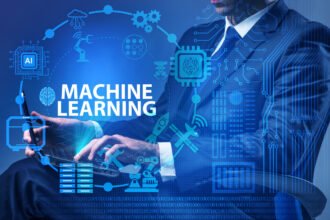The Data Scientist profession today is often considered to be one of the most promising and lucrative. The Bureau of Labor Statistics estimates that the number of data scientists will increase from 32,700 to 37,700 between 2019 and 2029.
Unfortunately, despite the growing interest in big data careers, many people don’t know how to pursue them properly. You should learn what a big data career looks like, which involves knowing the differences between different data processes.
Online courses and universities are offering a growing number of programs of study that center around the data science specialty. However, it is not always clear for beginners where to start and how to choose the most effective path.
You may not even know exactly which path you should pursue, since some seemingly similar fields in the data technology sector have surprising differences. We decided to cover some of the most important differences between Data Mining vs Data Science in order to finally understand which is which.
What is Data Science?
Data Science is an activity that focuses on data analysis and finding the best solutions based on it. Previously, such problems were dealt with by specialists in mathematics and statistics. Then artificial intelligence advances became more widely used, which made it possible to include optimization and informatics in analysis methods.
This new approach has proven to be much more effective, so it is a skill set that people must master to become data scientists. For example, many cryptocurrency platforms like Safetrading use AI to review services that provide free trading signals, which makes accuracy and speed higher.
Definition: Data Mining vs Data Science
Data mining is an automated data search based on the analysis of huge amounts of information.
The goal is to identify trends and patterns, which is impossible with conventional analysis. Complex mathematical algorithms are used to segment data and estimate the likelihood of subsequent events.
Every Data Scientist needs to know Data Mining as well, but about this moment we will talk a bit later.
Where to Use Data Science?
Data Science is used in different areas of our life and can help companies to deal with the following situations:
- Using predictive analytics to prevent fraud
- Using machine learning to streamline marketing practices
- Using data analytics to create more effective actuarial processes
Where to Use Data Mining?
Today data mining is widely used in business, science, technology, medicine, telecommunications, etc.
Analysis of data on credit card transactions, analysis of housing and communal services data, loyalty card programs in stores based on customer preferences, national security (intrusion detection), research of the human genome are just a few of the possible examples for data mining use.
Education. Six Steps Towards a Data Scientist
As you may see, these two terms can be similar for people who don’t understand them. The first thing you see is that the areas of applications are very different.
Nevertheless, we are here to help young engineers find their way. Now you, as a future engineer, may see if you are right and you wish to be a Data Scientist.
Let’s check where you should start!
1. Statistics, mathematics, linear algebra
You need to understand statistics and probability in order to grasp the basics of data science. This is important to be able to process data permutations quickly and effectively.
2. Programming
Familiarity with the programming fundamentals will be a big advantage. You can make it a little easier for yourself. It is best to learn one language first, so you can fully leverage its capabilities.
Consider Python when choosing a language. First, it is ideal for beginners, and its syntax is relatively simple. Secondly, Python is multifunctional and in demand in the labor market.
3. Machine learning
Computers learn to act on their own, we no longer need to write detailed instructions to complete certain tasks. Therefore, machine learning is of great importance for almost any field, but above all, it will work well where there is Data Science.
4. Data Mining Techniques and Data Visualization
Data Mining is an important research process. It includes the analysis of hidden data models according to various translation options into useful information that is collected and generated in data warehouses to facilitate business decisions designed to reduce costs and increase income.
5. Practical experience
It is not very interesting to be engaged exclusively in theory, it is important to try your hand at practice. Here are some good options for doing this.
Use Kaggle. It hosts a data analysis competition. There are many open datasets that you can analyze and publish your results. Plus, you can watch scripts posted by other contributors and learn from successful experiences.
6. Qualification confirmation
After you’ve learned everything you need to analyze data and try your hand at open competitions, start looking for a job. Independent confirmation of your qualifications will be an advantage.
Data Science vs Data Mining: Concluding Thoughts
So, in this article, we tried to briefly and clearly tell you about Data Mining vs Data Science. As you can see, they are very interconnected, and especially within the Data Scientist profession.
One final tip: don’t be a copy of copies, find your way. Anyone can become a Data Scientist that use Data Mining. Including yourself.
Everything you need is freely available: online courses, books, competitions for practice. But you shouldn’t come into the field just for fashion.
What we hear about Data Science: It’s cool, it’s the most engaging work of the 21st century. If this is the main incentive for you, it probably won’t last long. To be successful, it’s important to enjoy the process.
The Differences Between Data Science and Data Mining Are Very Important to Understand
There are a number of facets of the data technology field. If you are considering a career in this area, you should understand the differences between data science and data mining. These nuances are highlighted above.










